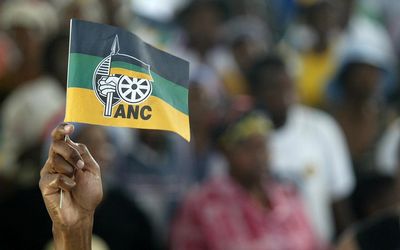SOMETHING big may have begun in our politics last week. But it was not what most people are looking for, and will not be settled over a few weeks. We may be watching the beginning of a major split in the African National Congress (ANC) that will take shape in the coming months and years.
One reason coverage of politics here is often confusing is the echo chamber — the chorus of reporters, commentators, and some politicians who all say the same thing, whether or not there is evidence to back it.
Not long ago, it told us that President Jacob Zuma was all-powerful, behind everything that went wrong, and able to brush away any challenge. Now it says he is finished, headed for recall by the ANC. The reason it can contradict itself so easily is that neither of its messages had much to do with reality.
Zuma was never all-powerful, he was always a symptom of a factional politics within the ANC.
The toxic mix of private money and public power that dominates the news is not restricted to him and one family — it sustains the patronage wing of the ANC, in which resources buy support, government office is used to dump on the poor, and security operatives are available to offer support.
It is taking an increasingly authoritarian turn as foreigners are denied the right to trade in the North West and the SABC ends a flagship political programme because it planned to talk about "state capture".
Uncomfortable questions are asked about why the premises of a nongovernmental organisation that takes the security cluster to court were broken into recently.
If this faction did not exist, Zuma might be on his way out. The reason he is not is that it remains strong and is not fussed by the disclosures of Deputy Finance Minister Mcebisi Jonas, former ANC MP Vytjie Mentor and others. What matters in patronage politics is who has power and who can be relied on to provide resources — those who wield power and rely on patronage to stave off poverty will remain loyal and continue to press, until next year’s ANC conference, for Zuma’s replacement by an ANC president sympathetic to them.
Zuma is also not all-powerful because this faction is not the only source of power in the ANC — there is also an urban faction peopled by those who know that the other faction’s politics cannot work for people who rely on the urban marketplace. The disclosures matter to them because they confirm everything they have been muttering under their breath. And the reason something big may be afoot is that Jonas, Mentor and others have prompted them to start saying it out loud: differences that have been hidden as the ANC publicly united are now in the open and will not be hidden again.
The South African Communist Party has moved from loyalty to Zuma to calling for his removal — possibly because it fears he may remove them. ANC secretary-general Gwede Mantashe no longer denounces plots to achieve regime change, but warns of a "mafia state" and declares that the president is not "inviolable".
Former ANC Youth League leader Ronald Lamola demonstrates outside the ANC national executive meeting to demand Zuma’s recall. And across the country, ANC activists rooted in the urban economy share criticism of Zuma and his faction that they suppressed before. A return to fake unity seems impossible. The patronage faction seems likely to increasingly force its opponents to disavow them as it becomes more open about what it really is — and it is even less likely to pretend to tolerate those who denounce the politics on which it relies.
None of this will happen quickly. Like most governing parties, the ANC can fudge its differences under stress.
The patronage faction will hide behind a well-resourced denial campaign; their opponents will test their strength and choose their issues. The war of attrition over the South African Revenue Service could become the norm as both sides jockey to choose the next ANC president. Even if the patronage faction loses ground, it may suit its opponents to weaken Zuma rather than remove him.
And so, despite the heavy breathing of the echo chamber, we may be in for the long haul in politics.
But a line was crossed last week — it makes far less sense to claim that the patronage politicians and their opponents belong in the same party.
The fight for the ANC’s future is coming to a head and the loser may have no option but to leave.
• Prof Friedman is director of the Centre for the Study of Democracy





















Change: -0.47%
Change: -0.57%
Change: -1.76%
Change: -0.34%
Change: 0.02%
Data supplied by Profile Data
Change: -1.49%
Change: 0.08%
Change: -0.47%
Change: 0.00%
Change: -0.04%
Data supplied by Profile Data
Change: 1.11%
Change: 0.15%
Change: 0.01%
Change: 0.07%
Change: 1.05%
Data supplied by Profile Data
Change: -0.28%
Change: -1.15%
Change: -0.07%
Change: -1.21%
Change: -0.22%
Data supplied by Profile Data